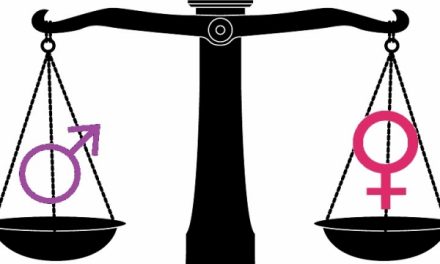Is women leadership forbidden by hadith?
Wherever I meet Muslim students in universities, east or west, I am asked whether female students could be elected to the board or the presidency of their “Muslim Student Associations”! It is a fact in today’s world that Muslim female students everywhere are generally more active that Muslim male students, and it is quite surprising that females are not allowed to leadership positions in their student organizations just because they are not males, and based on some strange fatwa from mediocre “scholars.”
And wherever I meet with board members of mosque organizations, especially in the west, I hear complaints from members of the community that females are not allowed on the board only because they are females. Again, Muslim women are very active and carry the burden of representing Islam itself in public, community leadership, and fundraising, more than Muslim men, especially in the west. However, in many mosque organizations, women are not allowed on the organizational board of the very community that they represent, lead, donate to, and serve!
One hadith narration is usually cited in this context, which has had quite a negative impact on the perception of women leadership in the Muslim mind over the centuries. It is the narration by Abu Bakrah Nufai’ Ibn Al-Harith Al-Thaqafi. He said,
“Allah benefited me with something I heard from the Prophet, peace be upon him, during the Battle of the Camel. I almost joined the People of the Camel and fight on their side, but then I remembered what I heard from the Prophet, peace be upon him, when he was told that the Persians appointed their deceased King’s daughter as their Queen. The Prophet said: A people who appoint a woman leader will never be successful.” [1]
This is, therefore, the final narration in this book that will require some critical analysis. The above narration, like all of the other previous narrations, has a context that is crucial for a proper understanding of its meaning and assessment of its narrators. The context of this narration is twofold:
- The context in which the narrator himself, Abu Bakrah Al-Thaqafi, cited the narration.
- The context in which the Prophet himself, peace be upon him, said what he said.
Abu Bakrah Al-Thaqafi was one of the “companions,” in the sense that he saw the Prophet, peace be upon him. However, the story of him accusing Al-Mughirah of adultery and not producing three other witnesses is well known.[2] The Quran states: “And those who accuse chaste women, and do not produce four witnesses, flog them with eighty stripes, and reject their testimony forever, they indeed are the fasiqun (liars, rebellious, disobedient).” (24:4). Therefore, Omar the Caliph, applied this punishment on Abu Bakrah when he refused to change his accusation.
The context in which Abu Bakrah Al-Thaqafi recalled the hadith is interesting. He did not narrate the hadith anywhere or to anybody we know until approximately 25 years after he claimed to have heard it. The context was the Battle of the Camel, or the civil war that the companions fought in the aftermath of the assassination of the third Caliph Othman in the Year 36 Hijri. Abu Bakrah Al-Thaqafi was not sure which side to take, as he said in his story, and decided finally to join the side of Ali Ibn Abu Talib, may Allah be pleased with him, based on this hadith. He referred to the other side of Mu’awiyah Ibn Abu Sufyan and Aisha, the Mother of the Believers, as the “unsuccessful side” because of the leadership role that Aisha took in that battle. Aisha actually lead the army on her camel, which is the reason why the whole battle was called the Battle of the Camel.
I humbly think that the political context of the narration is enough reason to reject it, whether Abu Bakrah Al-Thaqafi was a “trustworthy companion” or not. I witnessed several situations throughout my life where it is clear how political sides that scholars take, especially if there is violence or war involved, affect their sound judgment and perception of their rivals.
However, even if Abu Bakrah Al-Thaqafi was a trustworthy narrator, as many scholars of hadith insisted, the context of the saying of the Prophet, peace be upon him, is also worth reflecting. The story was the news of the assassination of another King of Persia and not finding any more males in the family to take over the throne. Therefore, the King’s daughter, who was a teenager, took over in a final attempt to save the kingdom that was already failing with internal disputes.
Note also that the previous King of Persia ripped the scroll that the Prophet peace be upon him sent, and ordered two Yemenis to arrest the Prophet and bring him to Persia. When the two Yemenis arrived in Medina, the story goes that the Prophet, peace be upon him, told them that Allah told him that their king was killed in the same morning. The Prophet, therefore, sent another message to the new king and invited him to embrace Islam. This is the context in which the Prophet, peace be upon him, said that the Persians will never be successful under the leadership of their new queen – not because she is a female but because of the continuous killing of the kings and princes.
It is very important, from a methodological point of view, to put the hadith narrations within the context of the Quranic scripts that address the same issues. The Quran does present several women as “examples,” and the most obvious example in this context is the Queen of Sheba’s leadership, which was quite a successful leadership. The Quran states (excerpts from: 27:29-44):
When the Queen had read Solomon’s letter, she said: “O you nobles! A truly distinguished letter has been conveyed unto me. Behold, it is from Solomon, and it says, ‘In the name of God, The Most Gracious, The Dispenser of Grace: God says: Exalt not yourselves against Me, but come unto Me in willing surrender!'” She added: “O you nobles! Give me your opinion on the problem with which I am now faced; I would never make a weighty decision unless you are present with me.” They answered: “We are endowed with power and with mighty prowess in war – but the command is yours; consider, then, what you would command.” She said: “Verily, whenever kings enter a country they corrupt it, and turn the noblest of its people into the most abject. And this is the way they always behave. Hence, behold, I am going to send a gift to those people, and await whatever answer the envoys bring back.” Now when the Queen’s messenger came unto Solomon, he said: “Do you people mean to add to my wealth? But that which God has given me is so much better than all that He has given you! Nay, it is only such as you that would rejoice in this gift of yours! “Go back to them! For, God says: ‘We shall most certainly come upon them with forces which they will never be able to withstand, and shall most certainly cause them to be driven from that land of theirs, despicable and humbled’!'” When Solomon learned that the Queen was coming, he said to his council: “O you nobles! Which of you can bring me her throne before she and her followers come unto me in willing surrender to God?” … And so, as soon as she arrived, she was asked: “Is your throne like this?” She answered: “It is as though it were the same!” And Solomon said to his nobles: “She has arrived at the truth without any help from us, although it is we who have been given divine knowledge before her, and have long ago surrendered ourselves unto God! … After a while she was told: “Enter this court!” – but when she saw it, she thought that it was a fathomless expanse of water, and she bared her legs. Said he: “Behold, it is but a court smoothly paved with glass!” Cried she: “O my Sustainer! I have been sinning against myself, but now I have surrendered myself, with Solomon, unto the Sustainer of all the worlds!”
The Queen of Sheba is by all standards an example of a “successful” leadership, which is not compatible with the wrong interpretation of the above hadith. The claim that the Queen’s story in the Quran is somehow “abrogated” or “does not apply to Muslims,” is not even worth discussing.
[1] Bukhari 4425, and Nasa’i 8/227 under the chapter titled: “Forbidding the rulership of women”.
[2] Al-Zahabi, Siyar A’lam al-Nubala, Beirut: Al-Risala, 2001, 3/5.






